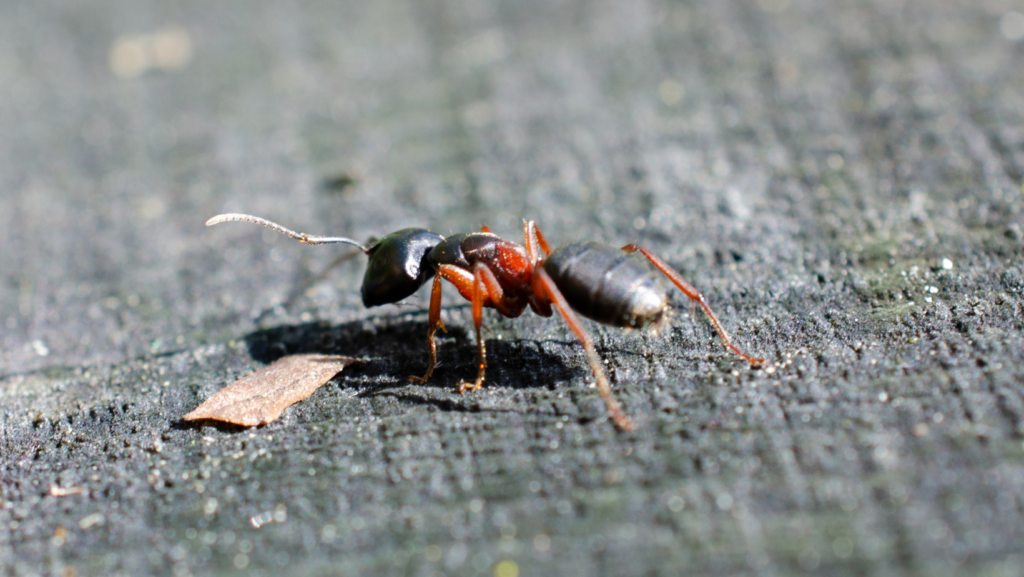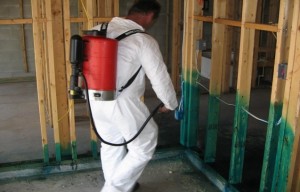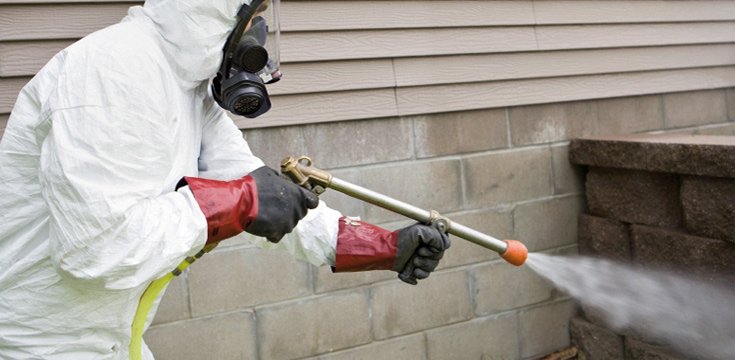Environmental Impact of Parasite Control: Balancing Effectiveness With Sustainability
The environmental influence of bug control is a critical concern that calls for a delicate balance between attaining performance in taking care of insects and making sure sustainability of our ecological communities. As we aim to shield our crops, homes, and health and wellness from the risks posed by bugs, the methods we utilize can accidentally harm the setting. From making use of harmful chemicals that leak right into our dirt and water to the unintended effects on non-target types, the effects of conventional bug control methods are significant. There are emerging strategies that offer hope for a much more lasting technique to pest management. These solutions not only objective to deal with the immediate parasite issues however also take into consideration the long-term wellness of our earth.
Hazardous Chemicals in Insect Control
The application of hazardous chemicals in parasite control postures substantial environmental and health and wellness threats that require mindful consideration and reduction techniques. Pesticides, herbicides, and pesticides are frequently made use of to get rid of insects, however their prevalent application can cause unintentional consequences. These chemicals can pollute dirt, water resources, and the air, affecting not only the targeted insects but additionally beneficial insects, wildlife, and humans.

To attend to these risks, incorporated bug management (IPM) techniques are being promoted as a much more lasting alternative. IPM entails a mix of methods such as organic control, environment manipulation, and the targeted use chemicals as a last option (ant control lewisville nc). By adopting an all natural approach to pest control, we can decrease the ecological and health and wellness influences connected with harmful chemicals while successfully handling pest populations
Influence On Non-Target Variety
Considering the unintentional repercussions of insect control approaches, the effect on non-target varieties is an essential facet that calls for extensive examination. While pest control steps aim to target specific parasites, other microorganisms in the environment might be accidentally affected. Non-target types, consisting of helpful pests, birds, mammals, and even plants, can endure straight or indirect harm from pesticide applications or biological control methods.
Chemicals can have deadly or sub-lethal effects on non-target types. As an example, pesticides developed to battle a certain bug bug may damage pollinators like or all-natural killers such as ladybugs. In addition, chemical deposits can accumulate in the atmosphere, influencing non-target organisms gradually. Organic control agents, if not species-specific, can present risks to unexpected targets, disrupting the environmental equilibrium.
To minimize the effect on non-target species, incorporated parasite monitoring (IPM) strategies that emphasize a holistic strategy to pest control are advised. These techniques prioritize making use of eco pleasant techniques, reducing injury to valuable microorganisms while successfully managing pest populaces. Performing complete danger assessments and keeping track of the results of insect control efforts are necessary steps in protecting non-target varieties and promoting overall environment health.
Soil and Water Contamination
Unintentional ecological consequences of parasite control approaches expand beyond influencing non-target types, with substantial implications for soil and water contamination - ant control. Pesticides, herbicides, and chemical fertilizers used in bug control can seep into the dirt and pollute groundwater, positioning a threat to both aquatic and terrestrial ecological communities.
Water contamination is an additional important concern related to bug control techniques. Drainage from farming fields treated with pesticides can lug these chemicals into close-by water bodies, affecting marine microorganisms and water top quality. Pollutants in water sources can have far-reaching consequences, impacting not only marine life however also human health through the intake of infected water or water microorganisms. To minimize dirt and water contamination from pest control activities, integrated pest monitoring approaches that focus on sustainability and lessen chemical inputs are critical.
Air Contamination From Chemical Use
Exposure to airborne chemicals during agricultural applications poses a substantial concern for air pollution control actions. When chemicals are sprayed onto crops, they can volatilize into the air and form unstable organic compounds (VOCs) and other air-borne toxins. These chemicals can add to the development of ground-level ozone, a major part of smog that can have harmful effects on human wellness, crop efficiency, and general air high quality. Furthermore, pesticide drift, where chemicals are carried by the wind to unintended areas, can lead to the contamination of neighboring environments and water bodies.

Strategies for Sustainable Parasite Control
In the world of farming methods, implementing lasting bug control methods is extremely important for preserving environmental equilibrium and guarding plant yields. Lasting bug control emphasizes the use of eco-friendly approaches to handle parasite populations successfully while minimizing damage to non-target microorganisms and ecosystems. Integrated Bug Monitoring (IPM) is a commonly taken on approach that combines biological, cultural, physical, and chemical control approaches to accomplish long-lasting parasite management options.
Crop turning and diversification are additionally reliable strategies to disrupt pest life cycles and develop much less positive conditions for parasites to flourish. Inevitably, by integrating these sustainable parasite control strategies, farmers can attain an equilibrium in between pest administration efficiency and environmental stewardship.
Conclusion
In conclusion, the ecological influence of insect control methods need to be meticulously taken into consideration to stabilize performance with sustainability. Hazardous chemicals used in pest control can lead to soil and water contamination, air pollution, and damage non-target types - ant control. It is critical to implement sustainable bug control techniques to decrease these adverse effects on the atmosphere and advertise a much healthier ecosystem for future generations
By embracing an all natural strategy to pest control, we can decrease the ecological and health and wellness effects linked with harmful chemicals while effectively taking care of pest populations.

To mitigate the air contamination caused by pesticide usage, it is important to take on integrated bug management methods that prioritize the usage of non-chemical insect control approaches, such as plant turning, natural predators, and resistant plant ranges. Sustainable insect control emphasizes the use of ecologically friendly techniques to manage bug populations successfully while reducing injury to non-target microorganisms and ecosystems. Integrated Pest Monitoring (IPM) is a widely taken on approach that integrates organic, social, physical, and chemical control techniques to attain lasting parasite monitoring solutions.